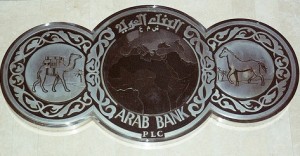Posted on 07 January 2011. Tags: assets, chase co, currencies, current account deficit, economy, fiscal deficit, london, low interest rates, normand, trades
 The dollar will decline this year as the Federal Reserve keeps the interest rates near to zero and the fiscal deficit stays close to record despite the extension of Bush-era tax cuts, the JPMorgan Chase & Co said.
The dollar will decline this year as the Federal Reserve keeps the interest rates near to zero and the fiscal deficit stays close to record despite the extension of Bush-era tax cuts, the JPMorgan Chase & Co said.
John Normand, the head of currency strategy at JPMorgan London, said that dollar will drop about 12 percent to $1.48 per euro and 7 percent to 78 yen by the end of year 2011. The bank predicts that Canadian dollar will be the best performer among the major currencies this year if oil averages above $100 per barrel.
In addition, Normand said that U.S currency will be utilized to fund the so-called carry trades, which will then be used to buy higher-yielding currencies.
The growth of U.S economy is not enough to support the dollar since it is highly improbable that the Fed will increase interest rates over the next 12 months. Normand said in an interview that few people will purchase the dollar as an investment, but they will use it as a funding currency.
The currency increased 7 percent versus the euro last year. However, it dropped 13 percent against the yen, which is thought as the biggest turn down against a major currency, when record-low interest rates in the U.S reduced the appeal of American assets.
Normand said the Federal Reserve is not likely to increase the interest rates this year for the reason that inflation pressures still remain submissive. The currency might also suffer from increasing current account deficit.
However, the JPMorgan forecast tells that the U.S economy might increase, from 2.9 percent growth in 2010 to 3.3 percent this year. Consumer prices will also rise 1.2 percent from the average 2.5 percent in the past ten years.
Posted in Business, Featured News
Posted on 31 October 2010. Tags: amount of money, arab bank, assets, balance sheet, continents, first nine months, global downturn, net profit, palestine, profits
 Arab Bank ARBK.AM in Jordan dropped 19.7 percent from its nine-month profits to $402.3 million the same period last year. This report is based on its financial statement released on Sunday.
Arab Bank ARBK.AM in Jordan dropped 19.7 percent from its nine-month profits to $402.3 million the same period last year. This report is based on its financial statement released on Sunday.
According to the given financial statement, the bank had a 3 percent growth in assets at the beginning of the year. That is, $52.12 billion against $50.6 billion.
Also, the bank’s balance sheet showed that they had set aside a total amount of $203 million to supply for non-performing loans during the first nine months of the year 2010, which increased from $111 million amount of money they had kept for the same period last year.
Today, most banks in Jordan are setting aside larger provisions to help them cover potential defaults and non-performing loads by real estate firms and businesses falling down from the effect of global downturn on the aid-dependent economy.
Arab Bank was established in Jerusalem, Palestine during the 1930s. This is a small bank that has evolved into one of the largest financial institutions found in the Middle East. Today, they have the largest worldwide Arab branch network. They have over 500 branches in around 30 countries from 5 different continents.
The bank’s nine-month net profit dropped down to $500.9 million from their $672.8 million last year.
However, bankers inform that while their credit provisions reflect on its profits, the Arab Bank has a healthy base that cushions them and about $8 billion shareholders equity.
Posted in Finance
Posted on 09 October 2010. Tags: ackerman, agreement states, assets, banks, basel iii, chief executive, finance industry, financial shocks, global economy, institute of international finance, liquidity, regulators, risk, three times, timetable, top quality

International bankers warn that forcing several financial establishments to reach up with the new capital requirements too fast could
greatly hurt the economies around the world.
As a result of the Basel III agreement that 27 countries have settled last month, individual countries might push their banks to meet with the new capital and liquidity standards before the deadline on year 2019.
According to the chief executive of Deutsche Bank, Josef Ackerman, there really is a great concern when national governments accelerate the phasing in process on the finance industry.
Ackerman, the chairman of the Institute of International Finance, which is holding its yearly meeting in Washington this weekend, warns along with other bankers that global economy is still fragile. Forcing the capital standards too quickly could already throttle the economy even before it has recovered.
The Basal III agreement states that banks should get top-quality capital equivalent to a total of 7-percent of their risk-bearing assets. That is three times more than the current standards so they can better endure financial shocks and downturns on the economy.
They have until 2015 to meet the minimum core Tier capital requirement; that is, at least 4.5 percent of assets. By 2019, they should have additional 2.5 percent, which is called the capital conservation buffer.
Even the regulators who attended the event treated the idea that the timetable would be moved up as less important, thinking that the new requirements will not impact the economies around the world negatively.
Posted in Finance
 The dollar will decline this year as the Federal Reserve keeps the interest rates near to zero and the fiscal deficit stays close to record despite the extension of Bush-era tax cuts, the JPMorgan Chase & Co said.
The dollar will decline this year as the Federal Reserve keeps the interest rates near to zero and the fiscal deficit stays close to record despite the extension of Bush-era tax cuts, the JPMorgan Chase & Co said.
 Arab Bank ARBK.AM in Jordan dropped 19.7 percent from its nine-month profits to $402.3 million the same period last year. This report is based on its financial statement released on Sunday.
Arab Bank ARBK.AM in Jordan dropped 19.7 percent from its nine-month profits to $402.3 million the same period last year. This report is based on its financial statement released on Sunday.
